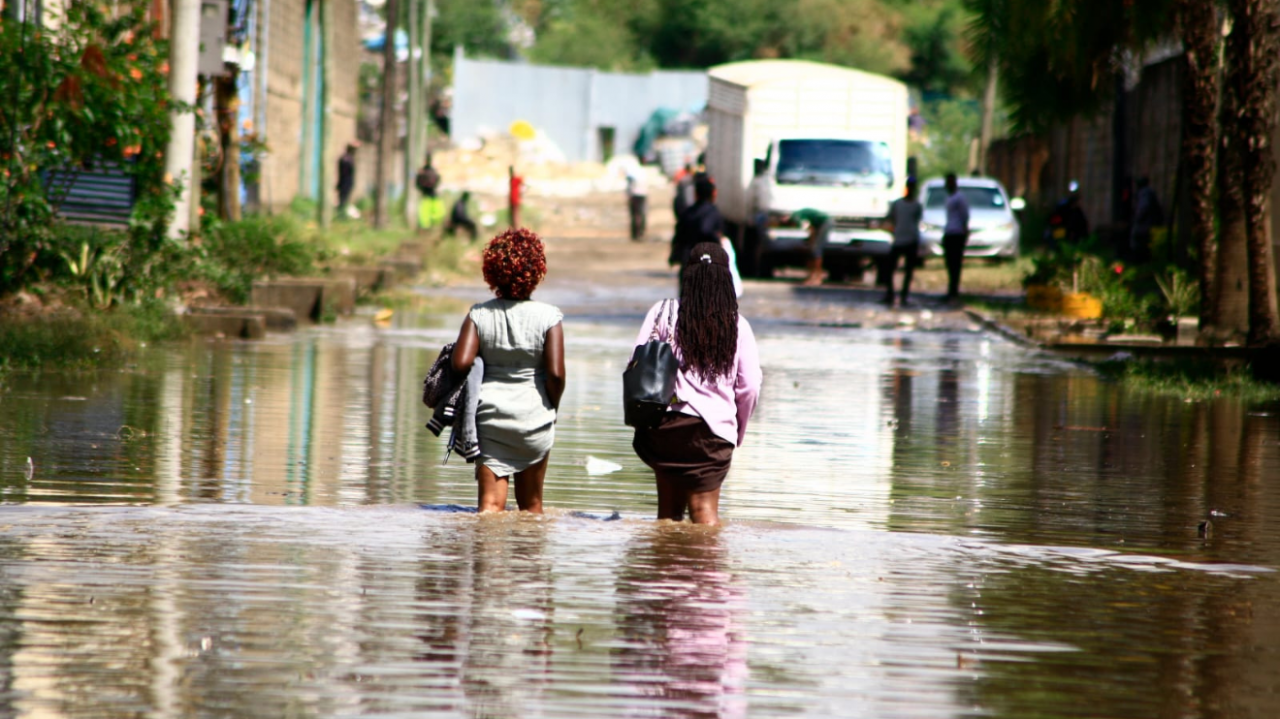
Kenya nairobi flooding – Kenya’s capital, Nairobi, has long grappled with the devastating effects of flooding, a persistent challenge that has left an indelible mark on the city’s infrastructure, economy, and social fabric. This article delves into the intricate web of causes, impacts, and mitigation measures surrounding Nairobi’s flooding crisis, providing a comprehensive analysis of this pressing issue.
From torrential downpours to inadequate drainage systems, the factors contributing to Nairobi’s flooding are multifaceted. The city’s rapid urbanization, coupled with deforestation and haphazard land-use changes, has exacerbated the situation, creating a breeding ground for floodwaters that wreak havoc on communities.
Overview of Flooding in Nairobi, Kenya

Nairobi, the capital and largest city of Kenya, has a long history of flooding. Heavy rainfall, urbanization, poor drainage systems, deforestation, and land-use changes have all contributed to the city’s vulnerability to flooding. Flooding has had a significant impact on Nairobi’s infrastructure, economy, and population.
Causes and Contributing Factors, Kenya nairobi flooding
Heavy rainfall is the primary cause of flooding in Nairobi. The city receives an average of 1,000 millimeters of rainfall per year, with most of it falling during the rainy seasons. Urbanization has also contributed to flooding, as the city’s rapidly growing population has led to the construction of more buildings and roads, which has reduced the amount of land available to absorb rainwater.
Poor drainage systems are another major contributing factor to flooding in Nairobi. The city’s drainage system is often overwhelmed by heavy rainfall, leading to flooding in low-lying areas. Deforestation and land-use changes have also increased the risk of flooding, as trees and other vegetation help to absorb rainwater and reduce runoff.
Impact of Flooding
Flooding in Nairobi has caused significant damage to buildings, roads, and other infrastructure. The city’s economy has also been disrupted by flooding, as businesses have been forced to close and transportation has been disrupted. Flooding also poses a health risk to residents, as it can lead to the spread of waterborne diseases.
In addition to the physical and economic impacts, flooding in Nairobi also has social consequences. Flooding can lead to displacement, as people are forced to leave their homes and businesses. It can also lead to social isolation, as roads and bridges are damaged, making it difficult for people to get around.
Mitigation and Adaptation Measures
There are a number of measures that can be taken to mitigate the risk of flooding in Nairobi. These measures include:
- Improving drainage systems
- Planting trees and other vegetation
- Reducing urbanization
- Implementing flood control measures
- Establishing early warning systems
- Developing community-based adaptation and resilience strategies
By implementing these measures, Nairobi can reduce the risk of flooding and protect its residents and economy from the impacts of flooding.
Final Thoughts

Addressing Nairobi’s flooding crisis requires a multi-pronged approach that encompasses flood control measures, early warning systems, and community-based adaptation strategies. By implementing sustainable solutions and fostering resilience among its citizens, Nairobi can mitigate the devastating impacts of flooding and build a more resilient urban environment.
User Queries: Kenya Nairobi Flooding
What are the primary causes of flooding in Nairobi?
Heavy rainfall, urbanization, poor drainage systems, deforestation, and land-use changes are the key factors contributing to Nairobi’s flooding problem.
How does flooding impact Nairobi’s infrastructure and economy?
Flooding damages buildings, roads, and other infrastructure, leading to economic losses and disruptions in transportation, commerce, and tourism.
What are some of the health risks associated with flooding in Nairobi?
Flooding can contaminate water sources, increasing the risk of waterborne diseases. It can also lead to displacement, overcrowding, and mental health issues.





